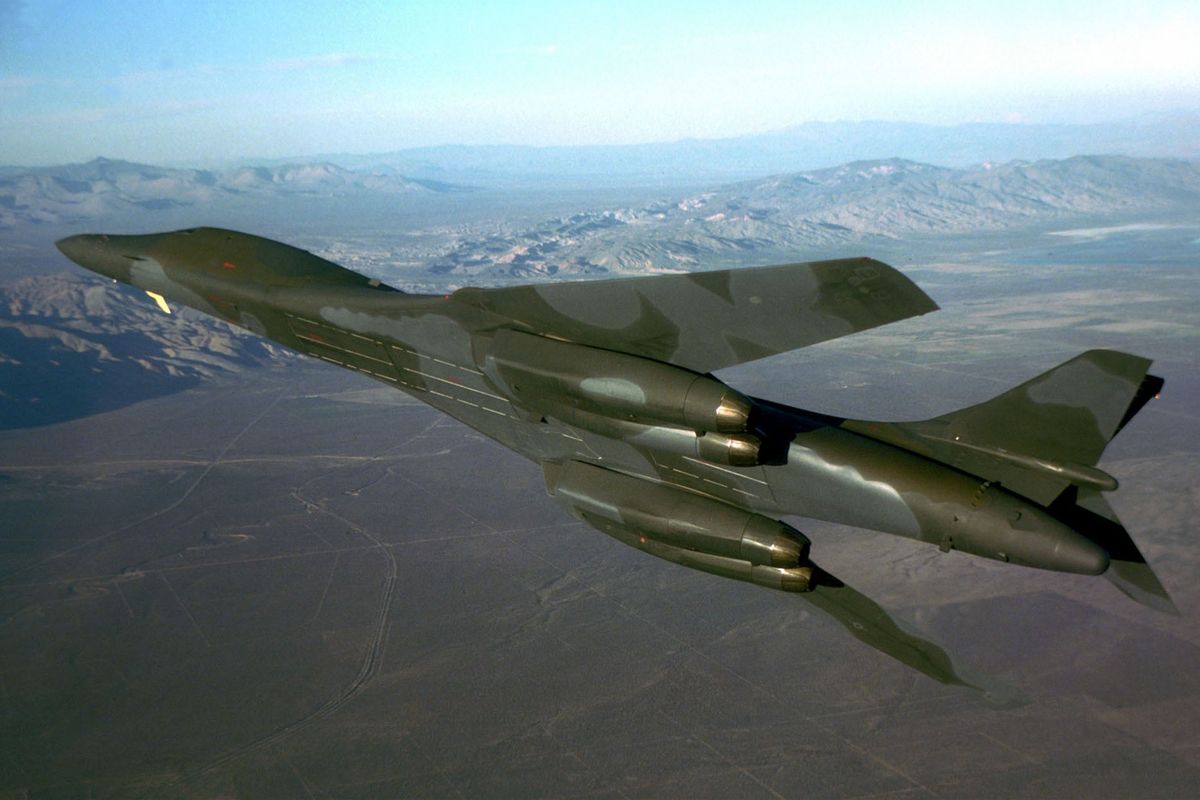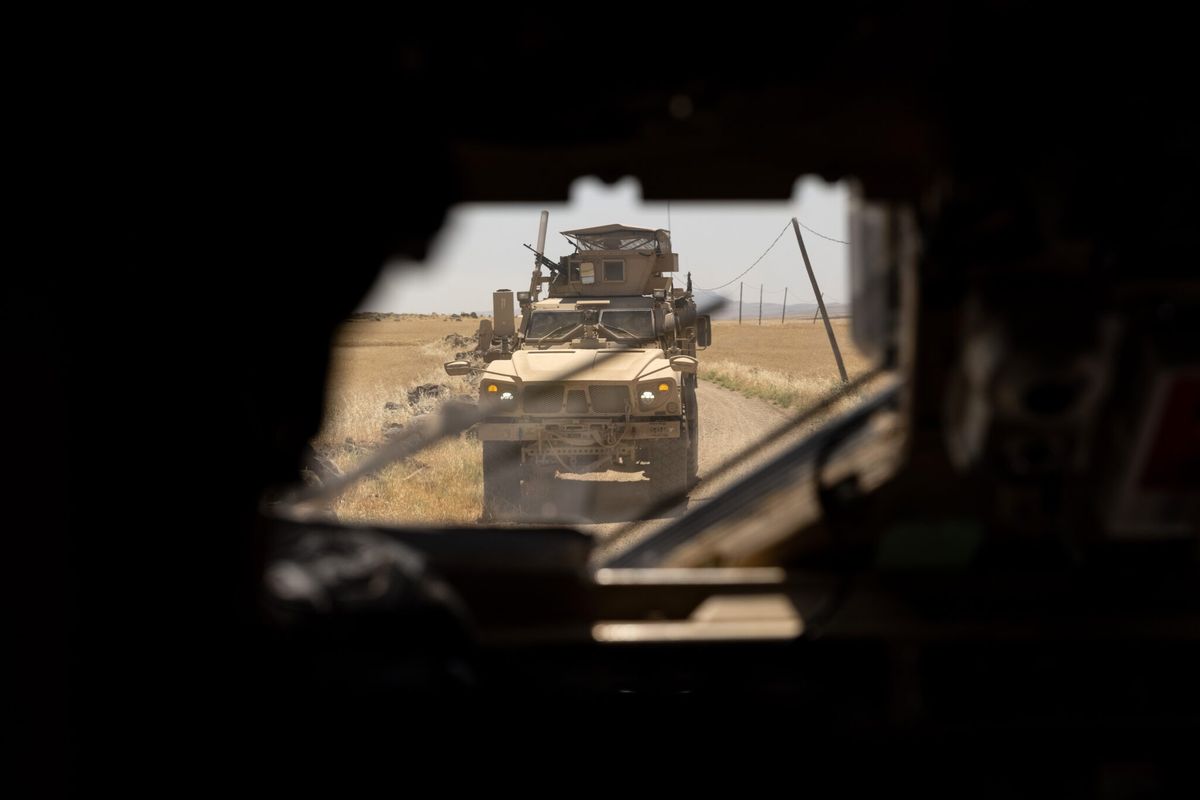As ISIS loses territory across Syria and Iraq, its capacity to generate revenue has declined drastically. Nonetheless, ISIS continues to profit from its oil industry, black market antiquities trading, and taxing and extorting local populations under its control. The U.S. government has worked with allies in the region to try and cut off ISIS financing, albeit with mixed results. The Cipher Brief’s Bennett Seftel spoke with Patrick Johnston, senior political scientist at the RAND Corporation and expert on ISIS financing, to discuss the group’s primary sources of income and how the U.S. and its partners can more effectively counter ISIS’ financing.
The Cipher Brief: ISIS has generated significant revenue from a variety of sources including oil, antiquities trading and the taxation of local populations to name a few. But with ISIS rapidly losing territory across Iraq and Syria, where does most of its revenue now come from?
Patrick B. Johnston: Three main sources: oil, extortion and confiscation. Oil has remained an important source of revenue for ISIS despite territorial losses: a coalition spokesman estimated that ISIS’ oil revenues declined to $4 million per month as of early October from a peak of $40 million per month in 2015. Despite this massive reduction in oil revenue, $48 million annually remains a substantial amount of money – especially for a group whose expenditures decrease with the size of the population and territory it controls and decreased recruitment.
In Iraq, the group has lost all the oilfields it previously controlled; in Syria, it recently lost the largest oilfield in the country. While ISIS oil revenue could continue to decline in the near future, it is still likely benefiting from taxing fuel consumption locally and charging fees for tanker trucks transiting ISIS-controlled areas.
Extortion is another ISIS revenue source. The group’s ability to credibly threaten violence against commercial enterprises in eastern Syria, western Iraq and elsewhere enable it to operate protection rackets largely out of sight of authorities.
Finally, the geography of ISIS’ modest current level of territorial control still provides ample opportunity for plunder: ISIS will continue to exploit its presence along the Iraq-Syria border to confiscate cash, cars, contraband and other property.
TCB: As ISIS loses territory and access to oil wells, have we seen the group morph into other criminal and illicit networks, such as the drug trade, human smuggling, kidnap for ransoms, etc.?
Johnston: There are reports that ISIS’ revenue-generating activities have increasingly shifted toward criminality as the group became weaker and lost territory. Interviews conducted over the summer with experts and key informants in Iraq and Syria indicated that ISIS does indeed engage in human smuggling and possibly the drug trade.
However, the main shifts ISIS is now making are toward mafia-like organized criminal activities, such as extortion and money laundering, to try to maintain access to the group’s riches, as its military future becomes increasingly uncertain – as does its ability to protect and spend money effectively within Iraq and Syria.
TCB: Has ISIS used the money lending system known as Hawala networks to transfer funds? How difficult are those to trace?
Johnston: ISIS has made extensive use of Hawala exchange houses to transfer funds. The informal nature of the Hawala system makes tracing the transfer of funds difficult for counterterrorist finance practitioners. The Iraqi government shut down a number of exchange houses suspected of collaborating with ISIS, but the group continues to use exchange houses covertly as a means of participating in the financial system beyond the areas under its control.
TCB: Has the U.S. cooperated with other countries on cutting off ISIS financing? How effective has that been?
Johnston: Yes, the U.S. has cooperated with many partner countries on cutting off ISIS’ financing. Two examples stand out. First, the U.S. worked with the government of Iraq to cut off salary payments to government employees in ISIS-held territory from whom ISIS plundered millions of dollars each month, as well as to harden the Iraq Central Bank’s currency auctions to deprive ISIS access to large stocks of a hard currency, such as U.S. dollars.
Second, the U.S. is the co-lead, with Italy and Saudi Arabia, of the Counter-ISIS Finance Group (CIFG), which coordinates coalition-wide counter-ISIS finance efforts, information-sharing and joint efforts among various coalition partner nations on specific issues, such as increasing border security with Turkey and dealing with antiquities smuggling and the sales of looted antiquities in several European nations.
In terms of effectiveness, cooperation with other countries has been a necessary, if insufficient, condition in the coalition’s broader counter-finance success. For example, improvements in Turkish border security have limited the cross-border flows that were largely unabated in 2014 and 2015, but changing battlefield dynamics and territorial control in northern Syria have also played a role. And while the effects of cooperation among CIFG members isn’t easily quantified, its information-sharing function has probably increased both the quantity and quality of intelligence that is collected and shared among CIFG member states.
TCB: How effective has the U.S. been at stopping ISIS financial streams? What more can be done to clamp down on ISIS financing?
Johnston: The U.S. air campaign against ISIS’ oil enterprise – known officially as Operation Tidal Wave II – has reduced ISIS revenue, increased the risks ISIS faces in producing and selling oil, and forced ISIS to adopt less-productive refinement methods. U.S. airpower has also been responsible for blowing up some two dozen of ISIS’ cash storage sites, including major banks in Mosul. The ratcheting up of U.S. airpower targeting ISIS’ financial assets in late 2015 prompted the group to adopt austerity measures that harmed morale, such as 50 percent salary cuts and the discontinuation of vehicle maintenance reimbursements.
After the fall of Raqqa – the last major city under ISIS control in its caliphate in Iraq and Syria – countering ISIS’ finances should remain an important preventive action to stop the group from staging a resurgence like the one that led to the proclamation of a caliphate in 2014. As the group morphs into an insurgency whose financing relies largely on criminal activities, the return of its military force is likely to diminish. Countering ISIS’ financing moving forward will likely entail greater emphasis on intelligence and law enforcement activities. High-quality training, advice and assistance to such non-military elements will be important to prevent ISIS remnants from regrouping underground through clandestine and covert criminal activity.
Finally, while reconstruction assistance is crucial for rebuilding the devastated cities that have been liberated from ISIS, the U.S. can and should exert leverage over the terms and conditions of any assistance it provides. Reconstruction aid and the contracting processes through which it is typically expended are vulnerable to ISIS’ mafia-like intimidation, extortion and violence. Without rigorous monitoring and evaluation, reconstruction assistance could end up inadvertently resuscitating ISIS rather than contributing to its demise in Iraq and Syria.













